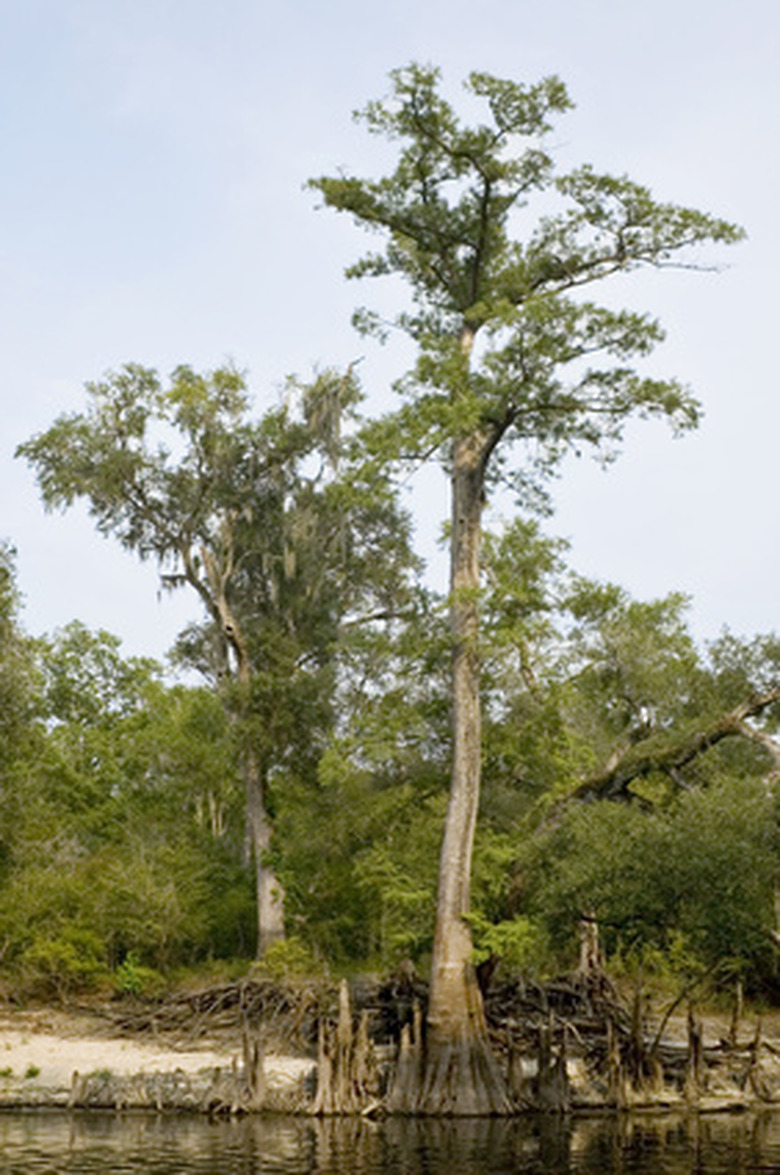Why Don't Termites Eat Cypress?
Cypress trees are evergreen trees that vary in height but may reach over 60 feet in maturity. Termites dislike cypress wood and this is important information for carpenters and homeowners alike. Carpenters use cypress for furniture, siding, and building trim, and they value the wood not only for its beauty, but also for the length of its boards. Cypress trees have two qualities that make them repellent to termites. The wood is dense, and therefore, termites have a difficult time chewing through it to create homes for themselves and their offspring. Additionally, termites generally do not like the smell and taste of cypress trees.
Cypresss Concentrate
Cypress concentrate repels termites outright, showing that termites have an innate dislike of cypress odor and smell. The effective cypress compound is called cypressene. Cypress wood is not chemically treated like other wood that is used for building because of its natural insect repellent qualities. Researcher Mary Duryea reported a study which showed that cypress-containing landscape mulch repelled termites at least three times more than landscaping mulches made from other tree woods.
Dense Heartwood
The USDA Forest Service reported that the heartwood, or the dense, inner wood of many species of trees, including cypress trees, tends to repel termites. The heartwood of trees tends to be denser than the sapwood, our outer portion of trees' structure.
Sapwood
University of Puerto Rico Agricultural Experiment Station showed that heartwoods in general were less hospitable to termite metabolism than the sapwood. This is because termites eat the sap of trees in order to survive, and the inner portion of trees don't carry sap, but only remain as structural support for the tree.
Types
A certain variety of cypress is more desirable to carpenters than others. The Tidewater Red Cypress has more cypressene than either the yellow or white varieties, and the Tidewater Red Cypress is denser than the other two varieties of cypress as well. As compared with pine lumber, cypress grows more slowly, creating denser, thicker wood which is less desirable to insects than the softer woods.
Benefits
Carpenters recycle wood to support green building practices, but they also like to reuse the higher quality woods and lumbers that came from the old growth forests that no longer exist in the U.S. today. Cypress is a popular wood that is currently being sought after in such a manner. Old cypress is recycled not only because the length of the timber boards is no longer attainable in modern lumber, but also for its beauty and functionality due to its insect fighting properties.
